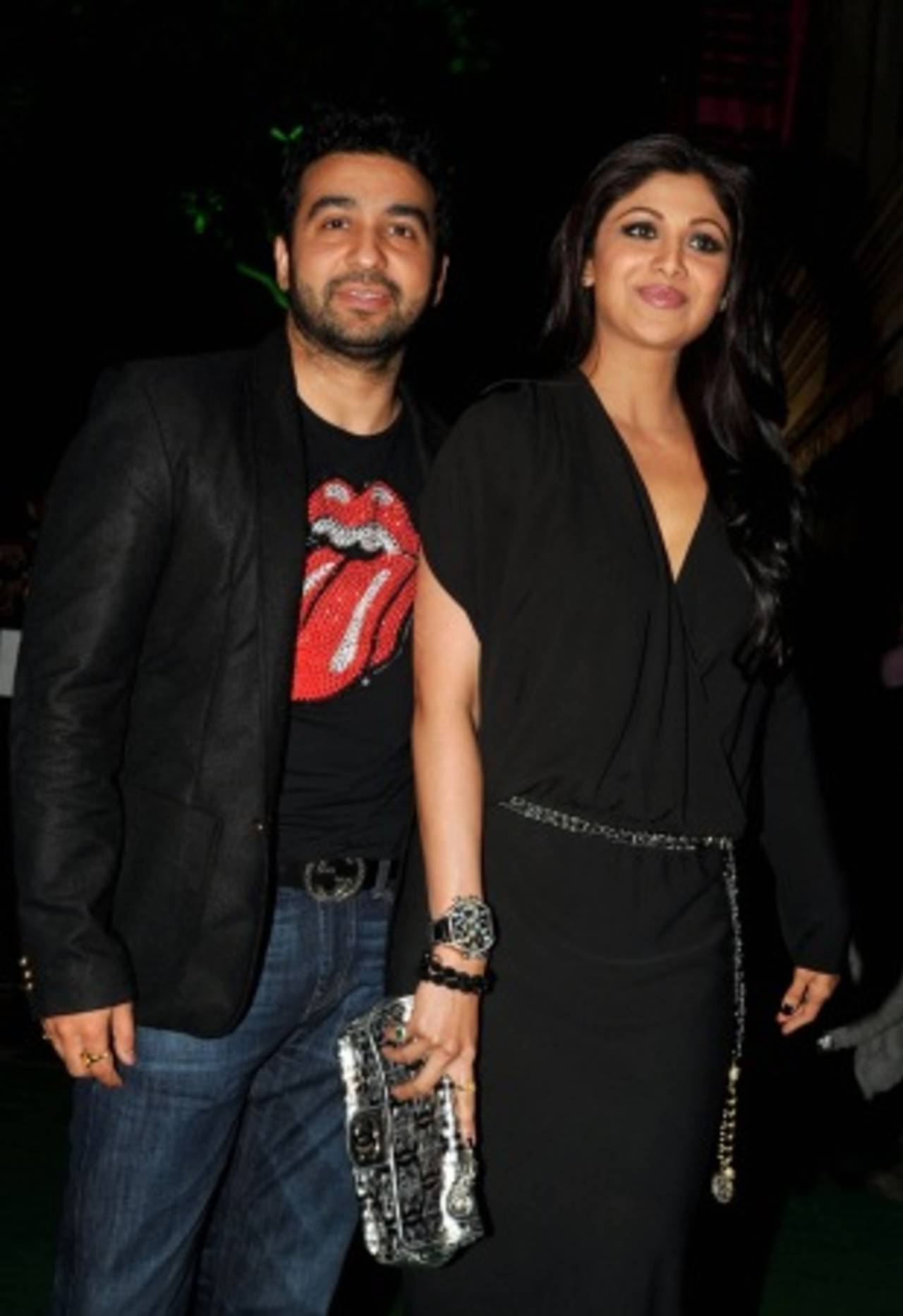BCCI probe likely to look into Kundra allegations as well
Gurunath Meiypappan and Raj Kundra could find themselves in big trouble at the end of the inquiry by two retired Tamil Nadu High Court judges, into the allegations of corruption in the IPL
Amol Karhadkar
06-Jun-2013

Raj Kundra [left] is likely to have a tough time escaping strict BCCI sanctions • AFP
Gurunath Meiypappan and Raj Kundra could find themselves in big trouble at the end of the inquiry by two retired Tamil Nadu High Court judges, into the allegations of corruption in the IPL.
Meiyappan, the Chennai Super Kings management member and son-in-law of BCCI president N Srinivasan, was released on bail after being arrested for allegedly indulging in betting during the IPL. According to the Delhi Police, Kundra, co-owner of Rajasthan Royals, admitted to have bet on matches involving his team.
The original task for judges T Jayaram Chouta and R Balasubramanian, the two independent members of what was originally a three-man panel, was to look into the complaints against Meiyappan, and the owner companies of Chennai Super Kings and Rajasthan Royals - India Cements and Jaipur IPL Cricket Pvt Ltd.
ESPNcricinfo understands that they will now also examine the alleged involvement of Kundra, who bought 11.7% stake in Royals franchise ahead of the 2009 edition, in betting. The decision is likely to be announced after the working committee meeting in New Delhi on June 10.
If Kundra and Meiyappan have indeed indulged in betting, police investigations aside, they can be found guilty of having breached IPL's Code of Conduct for Players and Team Officials and IPL's Anti-Corruption Policy. Besides, both the franchisees could also be terminated for having violated clause 11.3 (c) of the franchise agreement.
IPL's Code of Conduct for Players and Team Officials defines a team official as "(i) in relation to the Team any employee, coach, manager, selector, team official, doctor or physiotherapist (ii) any other person employed by or representing any Franchisee or Team including any director, secretary or officer of the Franchisee or (iii) any duly authorised (express or implied) agent of a Team or Franchisee."
Depending upon the seriousness and context of the breach, article 2.1.8(b) of IPL's Code of Conduct prohibits the following: "(a) public acts of misconduct; (b) unruly public behaviour; and (c) inappropriate comments which are detrimental to the interests of the game."
Clause 11.3 (c) of the franchise agreement mentions the agreement can be terminated if "the Franchise, any Franchise Group Company and/or any owner acts in any way which has a material adverse effect upon the reputation or standing of the League, BCCI-IPL, BCCI, the Franchise, the team (or any other team in the League) and/or the game of cricket."
Since "material adverse effect" isn't defined in the agreement, it is considered as a subjective term. However, it would be strange if it is applied to only one of the two teams.
Besides the code of conduct, both Kundra and Meiyappan may be found guilty of having breached IPL's anti-corruption policy, which makes it clear that any direct or indirect involvement with betting would be liable for suspension. Even though the word "owner" isn't mentioned in the policy, it refers to "Player Support Personnel" as "Any coach, trainer, manager, selector, team official, doctor, physiotherapist or any other person employed by, representing or otherwise affiliated to a playing/touring team or squad that is chosen to represent a National Cricket Federation in any Domestic Match or International Match or series of such Matches".
If found guilty, Kundra and Meiyappan can face sanctions between two and five years each on charges of corruption (Article 2.1.1, 2.1.2, 2.1.3 and 2.1.4), betting (Article 2.2.1, 2.2.2 and 2.2.3) and misuse of insider information (2.3.1, 2.3.2 and 2.3.3) according to the anti-corruption policy.
"The BCCI Disciplinary Committee shall have the discretion to impose a fine on the Participant up to a maximum of the value of any Reward received by the Participant directly or indirectly, out of, or in relation to, the offence committed under this Anti-Corruption Code," adds clause 6.2 of the policy.
The code defines reward as: "A person acts 'for Reward' if he/she arranges or agrees that he/she or some other third party will receive any direct or indirect financial or other benefit for that act (other than official prize money and/or contracted payments under playing, service, endorsement, sponsorship or other such similar contracts), and the term 'Reward' shall be construed accordingly."
Even if either of the two officials are found guilty to have breached multiple clauses, their suspension cannot increase for more than five years since both the code of conduct and the anti-corruption policy clarify that the sanction will be imposed "concurrently" and "not cumulatively" if a player or team official is found guilty on more than one charge.
With Meiyappan charged by the police under 12 different sections, the probability of the code of conduct not being observed is quite high. As a result, even though the legal system may take a long time in pronouncing the duo guilty (or otherwise), experts think the BCCI should be able to establish that their rules have been broken.
In their defence, both franchises might argue that Meiyappan - whom Super Kings have distanced themselves from - and Kundra were not team officials. However, it will be of little help.
"The designation doesn't matter. The moment you are a part of team management - whether employed or otherwise - you are entitled to adhere to the code of conduct and anti-corruption policy," an IPL insider said. "Both these individuals are undoubtedly members of team management, so if their involvement in the alleged [illegal] activities can be substantiated, they would obviously be punished according to the BCCI's rules."
Amol Karhadkar is a correspondent at ESPNcricinfo